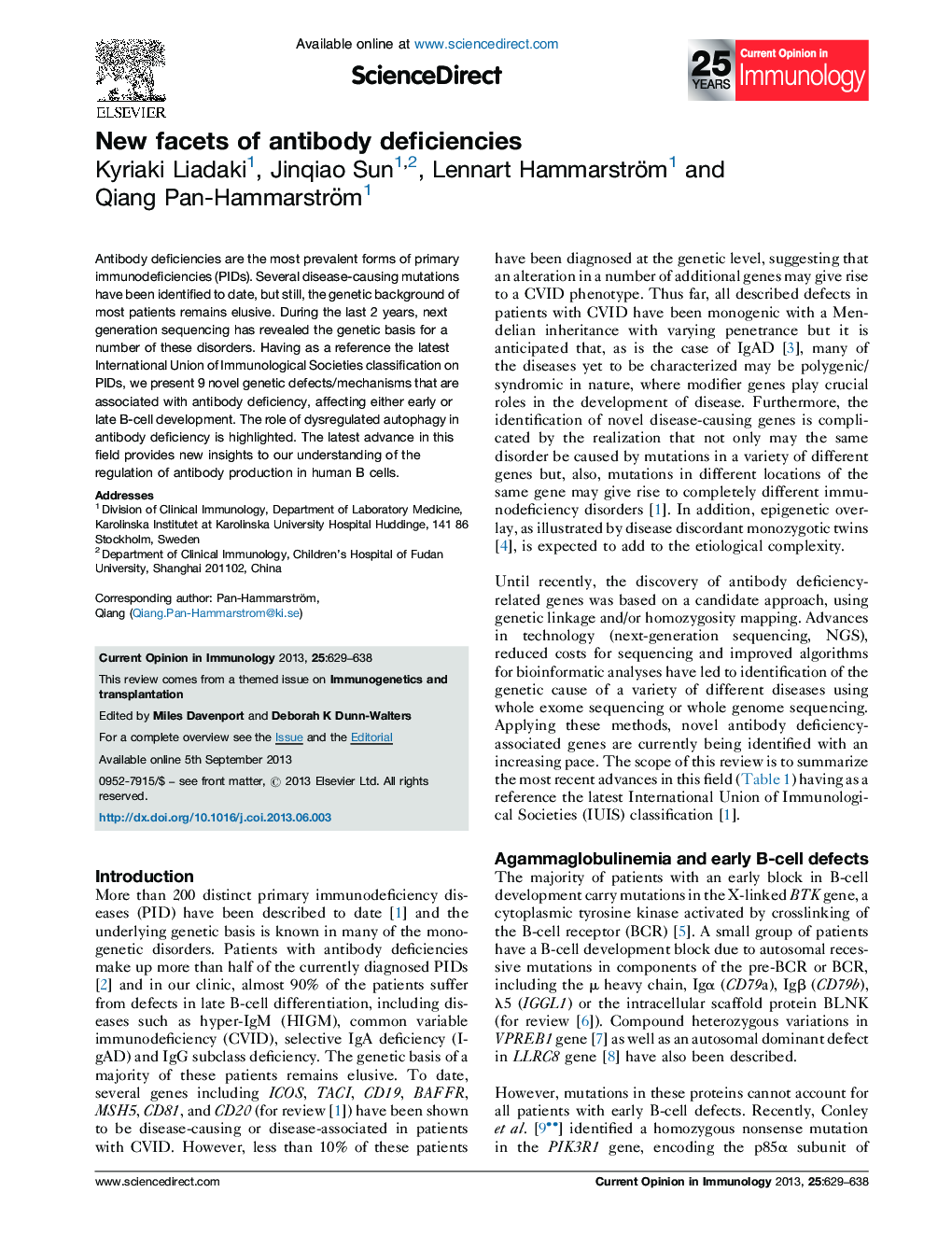| Article ID | Journal | Published Year | Pages | File Type |
|---|---|---|---|---|
| 3345833 | Current Opinion in Immunology | 2013 | 10 Pages |
•Nine novel genetic defects are described for antibody deficiencies.•Dysregulated autophagy maybe a novel mechanism underlying antibody deficiencies.•Next generation sequencing technologies are powerful tools for revealing the genetic causes of primary immunodeficiency.•The clinical phenotypes could be quite variable for some of the new disorders described. Studying additional patients is desired.
Antibody deficiencies are the most prevalent forms of primary immunodeficiencies (PIDs). Several disease-causing mutations have been identified to date, but still, the genetic background of most patients remains elusive. During the last 2 years, next generation sequencing has revealed the genetic basis for a number of these disorders. Having as a reference the latest International Union of Immunological Societies classification on PIDs, we present 9 novel genetic defects/mechanisms that are associated with antibody deficiency, affecting either early or late B-cell development. The role of dysregulated autophagy in antibody deficiency is highlighted. The latest advance in this field provides new insights to our understanding of the regulation of antibody production in human B cells.
